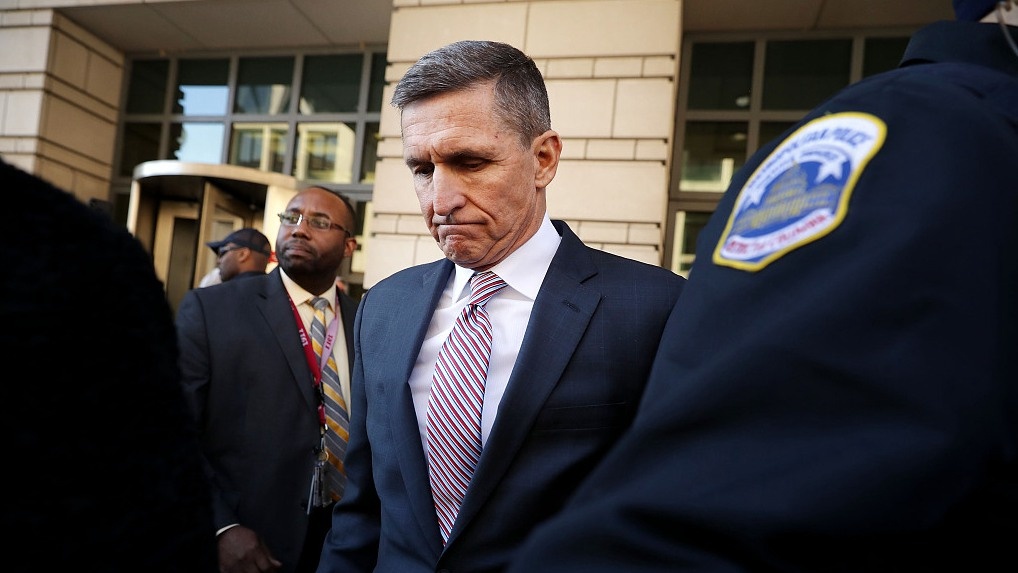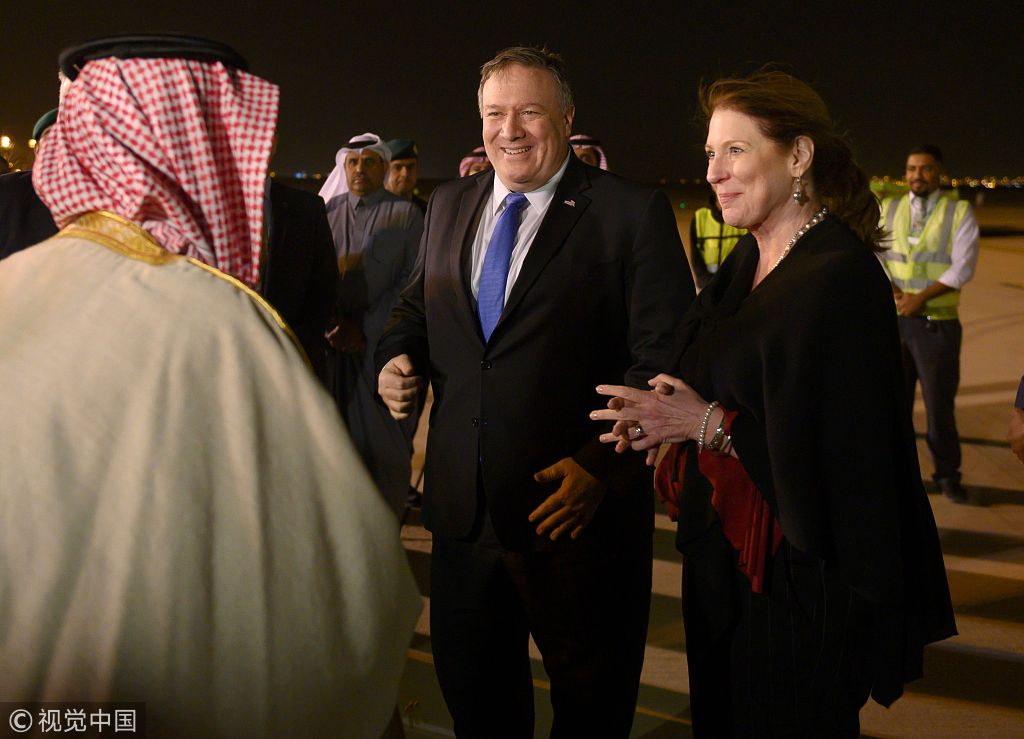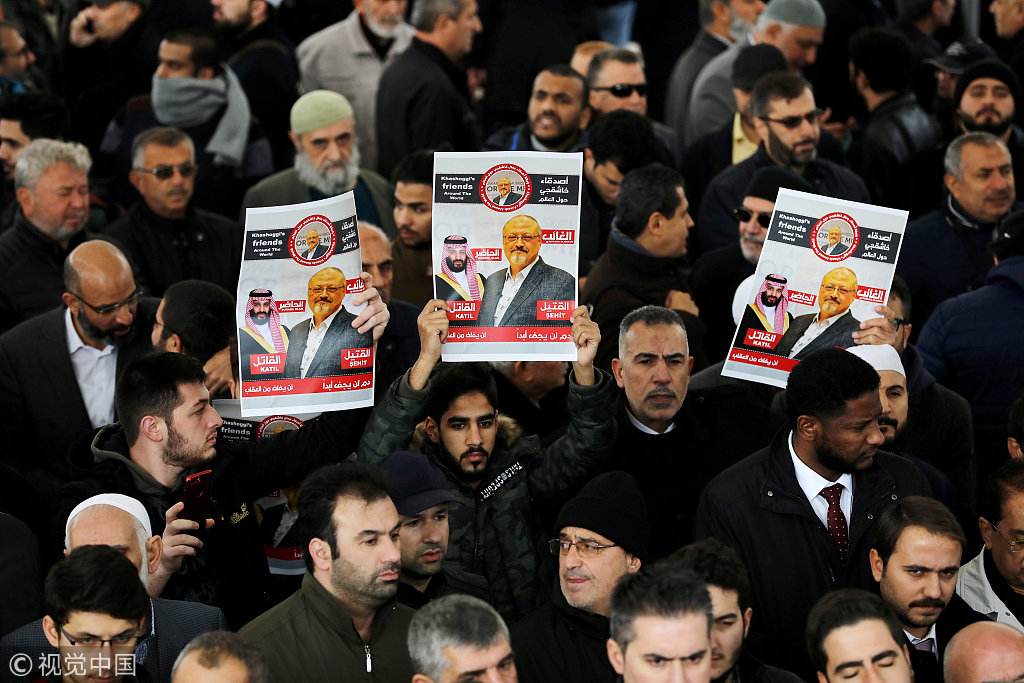
Opinion
08:39, 21-Feb-2019
U.S. double standards on nuclear technology exports to China and Saudi Arabia
Xu Sicong

It should not come as a surprise when the U.S. displays glaring double standards, a recent example of which concerns its nuclear technology dealings with China and Saudi Arabia.
Last October, the Trump administration announced that it would sharply increase scrutiny over civilian nuclear exports to China, claiming to be targeting the country's alleged illicit attempt to acquire nuclear technology outside "established processes of the two countries' civil nuclear cooperation," as well as to safeguard U.S. national security.
However, it seems that when it comes to such exports to the U.S. ally, it should be a different matter. On Tuesday, a congressional report released by the U.S. House Democrats discloses that certain top officials of the Trump administration have long been pressing hard for sharing nuclear technology with Saudi Arabia by building nuclear reactors across the kingdom; at the same time, it raises the grave concern that they have disregarded the country's national security procedures in such a pursuit. And Trump is reportedly "directly engaged."
The 1954 U.S. Atomic Energy Act stipulates that sales of nuclear equipment to a foreign nation require the approval of the Congress and relevant countries have to sign a "123 agreement" and meet nine conditions, with one of them being a guarantee that these countries will not develop nuclear weapons through such a technology transfer. However, officials involved, including former national security council staffer Derek Harvey, have circumvented such procedural and legal requirements and attempted to rush the plan through.

U.S. Secretary of State Mike Pompeo (C) and his wife Susan are greeted by Saudi's Minister of State for Foreign Affairs Adel al-Jubeir in Riyadh on January 13, 2019, during his extensive Middle East tour. /VCG Photo
U.S. Secretary of State Mike Pompeo (C) and his wife Susan are greeted by Saudi's Minister of State for Foreign Affairs Adel al-Jubeir in Riyadh on January 13, 2019, during his extensive Middle East tour. /VCG Photo
The action in defiance of the country's ethnic statutes in pursuit of such cooperation with Saudi Arabia would not be hard to understand given the enormous profits American businesses may be able to rake in and its potential, according to The Wall Street Journal, of "reviving the moribund U.S. nuclear industry, creating jobs and reasserting the U.S. influence in the region," which can be seen through the lobbying efforts of the IP3 International, a firm in which the former U.S. national security adviser Michael Flynn once served as an adviser, for the plan, starting from late 2016 and early 2017.
Trump also does not shy away from such economic reckoning. Last year, amid the scandal of the slaying of the Saudi journalist Jamal Khashoggi in Turkey, he has chosen to firmly stand by the kingdom's prince despite fierce domestic criticism, and also infamously said that the U.S. would not compromise relations with the kingdom as this relationship generates "hundreds of thousands of jobs, tremendous economic development, and much additional wealth for the United States."
However, economic ties are hardly the sole reason for the president to throw weight behind the deal. If so, nuclear technology exports to China would have gone unhindered. According to a 2017 Commerce Department report, China is the second biggest market for U.S. nuclear exporters and it is believed that, following the restrictions on exports to China, the U.S. industry may suffer losses, at least in the short term. Notwithstanding such a potential consequence, Trump went ahead with the decision to curb exports of the technology to China, which hints at another possible explanation for his rationale – geopolitical interests.

People holding pictures of Saudi journalist Jamal Khashoggi attend a symbolic funeral prayer for Khashoggi at the courtyard of Fatih mosque in Istanbul, Turkey, November 16, 2018. /VCG Photo
People holding pictures of Saudi journalist Jamal Khashoggi attend a symbolic funeral prayer for Khashoggi at the courtyard of Fatih mosque in Istanbul, Turkey, November 16, 2018. /VCG Photo
As a nation that wields powerful influence on regional matters, Saudi Arabia is at the forefront of the U.S. foreign policies with the two countries' alliance based on robust security cooperation and economic ties. Under the current administration, both have upped the ante in the battle against Iran's growing regional influence.
Even though security analysts have warned against the possibility of Saudi Arabia developing nuclear weapons through technology transfer from the U.S., the administration seems to have shown much less concern that has been otherwise seen in its dealing with China and Iran. Some pointed out that Saudi Arabia possessing such weapons would tip the balance towards its favor in countering Iran.
The differences in the Trump administration's policies on nuclear technology exports to China and Saudi Arabia goes without saying that, rather than being a real threat, China has merely fallen victim to the constant malicious U.S. attacks.
With Trump in office, rhetoric against the country has significantly toughened in recent times. Accusations leveled at the country range from rampant and directed technology theft to blatant intervention in the U.S. domestic politics and the country has consistently been depicted as a cheater, a free rider, and an aggressor. However, the revelation in the report has shed light into their real nature – instead of being legitimate concerns, they are in fact only pretexts used to advance the U.S.' strategic interests.
(Cover Photo: Former White House national security adviser Michael Flynn leaves the Prettyman Federal Courthouse following a sentencing hearing in U.S. District Court, December 18, 2018, in Washington, D.C.)
(If you want to contribute and have specific expertise, please contact us at opinions@cgtn.com.)

SITEMAP
Copyright © 2018 CGTN. Beijing ICP prepared NO.16065310-3
Copyright © 2018 CGTN. Beijing ICP prepared NO.16065310-3